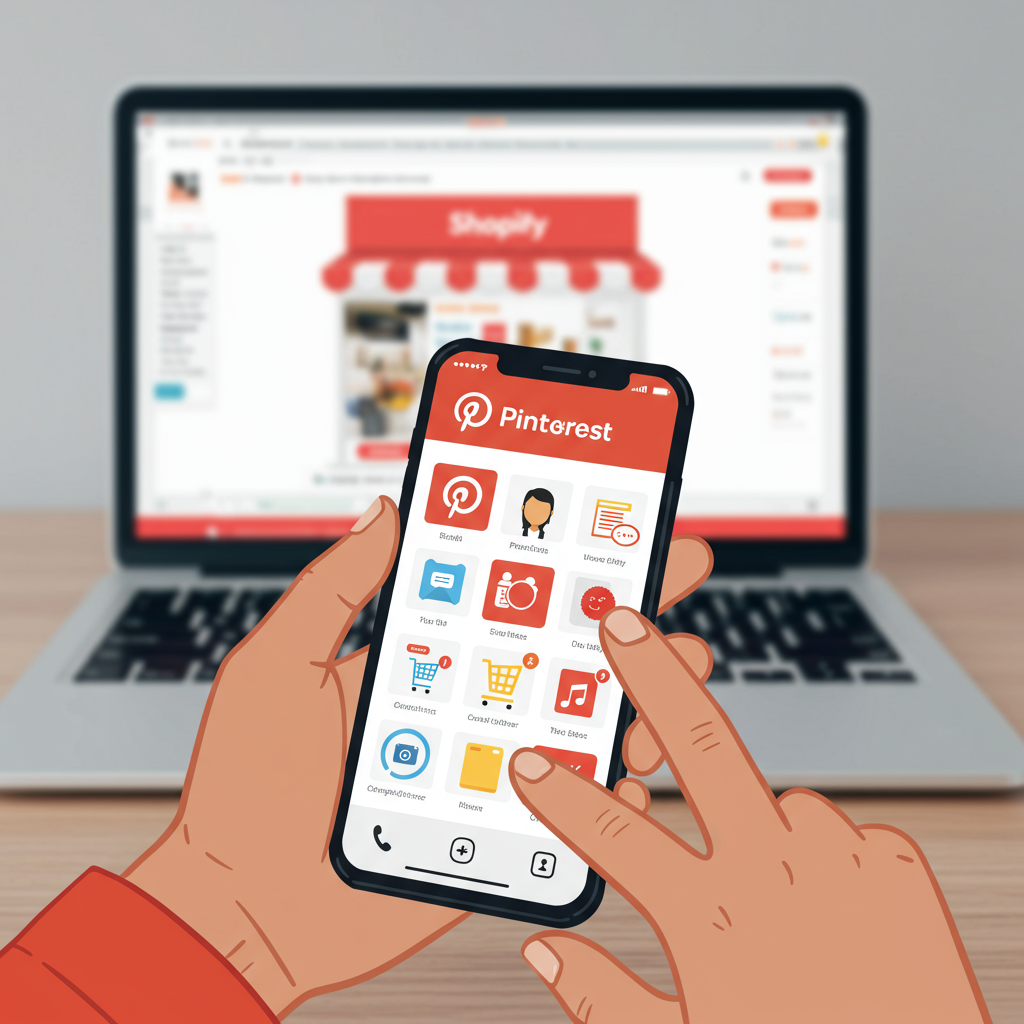Discover how I’ve successfully partnered with Pinterest creators to drive traffic and conversions for e-commerce stores, focusing on actionable strategies for Shopify merchants.
As an e-commerce entrepreneur, I’m constantly searching for innovative ways to expand my reach and connect with potential customers. One platform that has consistently delivered exceptional results for my Shopify stores is Pinterest.
Unlike other social media channels, Pinterest functions more like a visual search engine and discovery tool. People go there with intent – they’re planning, dreaming, and actively looking for inspiration and products.
This unique user behavior makes Pinterest an incredibly powerful channel for product discovery, especially for visual brands. My experience has shown that a well-optimized Pinterest presence can lead to significant referral traffic.
However, simply having a presence isn’t enough. To truly unlock Pinterest’s potential, I’ve found that partnering with influencers can be a game-changer. They possess the trust and attention of highly engaged audiences.
Pinterest influencers, often called ‘Pinfluencers,’ are creators who have cultivated a loyal following around specific niches. Their boards are curated collections that resonate deeply with their audience’s interests.
When an influencer pins your product, it’s not just a fleeting post; it’s a visual bookmark that can live on for months, even years, continuing to drive traffic back to your Shopify store.
My first step in any Pinterest influencer campaign is always to clearly define my target audience. Who are my ideal customers? What are their interests, their pain points, and what kind of content do they consume?
Once I have a clear picture, I begin my search for influencers whose aesthetic and audience align perfectly with my brand. Authenticity is paramount; I look for creators who genuinely love and use products similar to mine.
I start my search directly on Pinterest. I use keywords related to my products and niche, exploring popular boards and profiles. I pay close attention to engagement rates, not just follower counts.
A creator with fewer followers but high engagement (saves, clicks, comments) often delivers better results than a mega-influencer with a disengaged audience. It’s about quality over quantity.
Another valuable tool I use is Pinterest’s own analytics, if I have access to an influencer’s profile, or third-party influencer platforms that can help filter by audience demographics and past performance.
When vetting potential partners, I always review their past pins and boards. Do they maintain a consistent style? Is their content high-quality? Do they seem genuinely passionate about their niche?
I also look for influencers who have a strong understanding of Pinterest SEO – using relevant keywords in their pin descriptions and board titles to maximize discoverability.
Once I’ve identified a shortlist, my outreach strategy is always personalized. I never send generic templates. I reference specific pins or boards of theirs that I admire, showing I’ve done my homework.
My initial message clearly outlines who I am, what my Shopify store offers, and why I believe their audience would genuinely benefit from or be interested in my products. I focus on mutual value.
I propose various collaboration models. Sometimes, it’s a simple product gift in exchange for an honest review and pins. Other times, it’s a flat fee for a dedicated board or a series of pins.
Affiliate marketing is another excellent option I explore, offering a commission on sales generated through their unique tracking link. This incentivizes them to drive conversions, aligning our goals.
For my Shopify store, I ensure that every product page is optimized for Pinterest. This means high-quality, vertical images that stand out in the feed, and compelling descriptions.
I also make sure Rich Pins are enabled on my Shopify store. This automatically pulls important information like product price, availability, and description directly onto the pin, making it more informative and clickable.
Before launching any campaign, I discuss content expectations in detail. Will they create lifestyle shots? Tutorials? How-to guides? The more creative freedom I can offer while staying on brand, the better.
During the campaign, I closely monitor the performance using Pinterest Analytics. I track impressions, saves, clicks, and outbound clicks to my Shopify store. This data is crucial for understanding what resonates.
On the Shopify side, I use UTM parameters in all influencer links. This allows me to precisely track referral traffic, conversions, and revenue generated directly from each influencer’s efforts.
This granular data helps me calculate the ROI of each partnership and refine my strategy for future collaborations. It’s all about continuous optimization.
One of my biggest takeaways is the importance of building long-term relationships. A successful one-off campaign can be great, but an ongoing partnership with a trusted influencer yields compounding benefits.
Authenticity is key. I encourage influencers to integrate my products naturally into their content, rather than making it feel like an overt advertisement. This builds trust with their audience.
I also ensure clear disclosure of sponsored content, adhering to all relevant advertising guidelines. Transparency is vital for maintaining credibility.
After a campaign, I often repurpose the influencer-generated content on my own Pinterest boards, website, and other social media channels, giving it extended life and value.
What do you think about this approach to Pinterest influencer marketing for Shopify stores? I’d love to hear your thoughts and experiences!
In conclusion, Pinterest influencer marketing, when executed strategically, can be an incredibly powerful engine for growth for any Shopify merchant. It’s about finding the right partners, optimizing your store, and meticulously tracking your results.
My journey with Pinterest influencers has transformed how I approach online marketing, proving that a visual-first platform can be a direct path to increased sales and brand awareness.
I encourage you to explore this avenue for your own Shopify business. The visual nature of Pinterest, combined with the trust of influencers, creates a potent marketing synergy.






